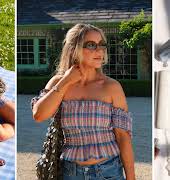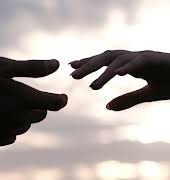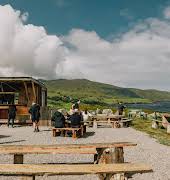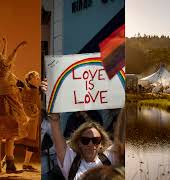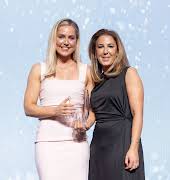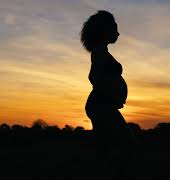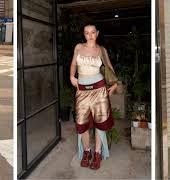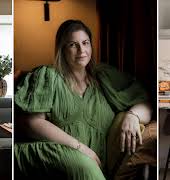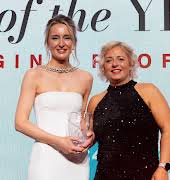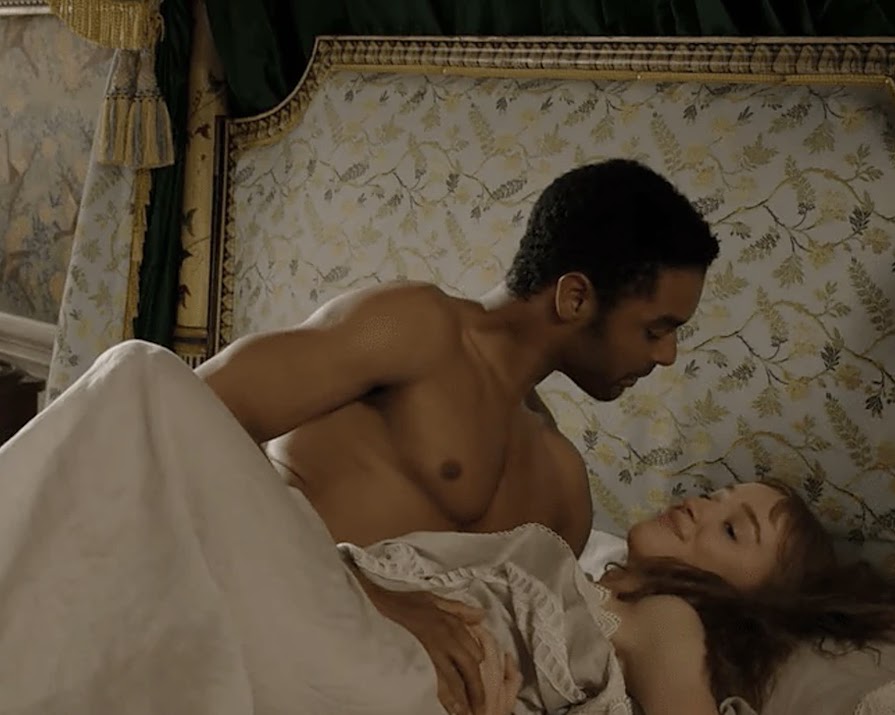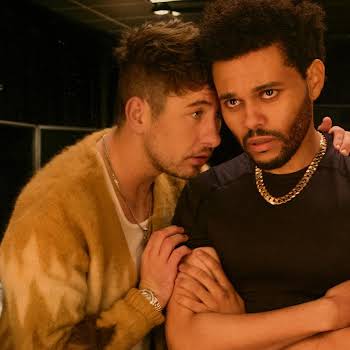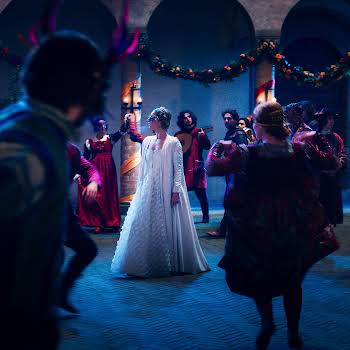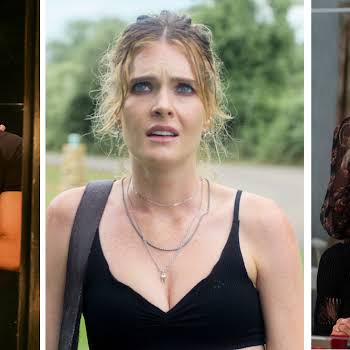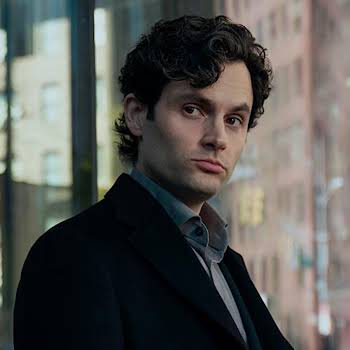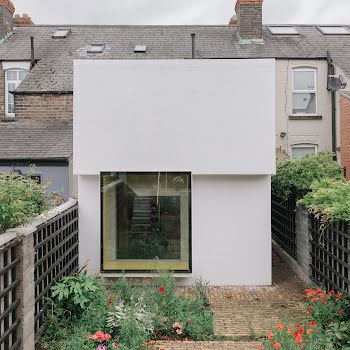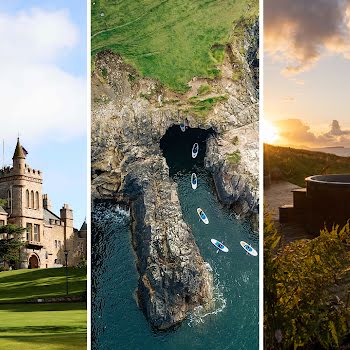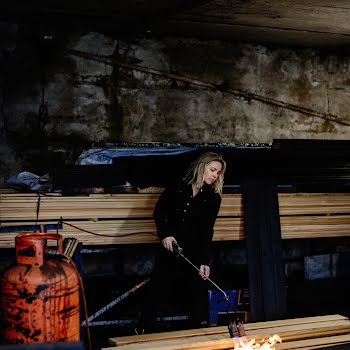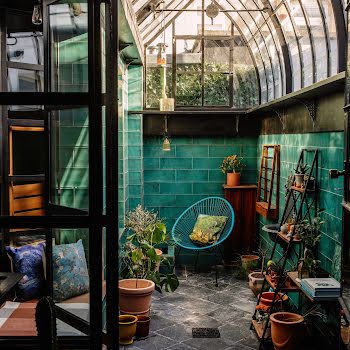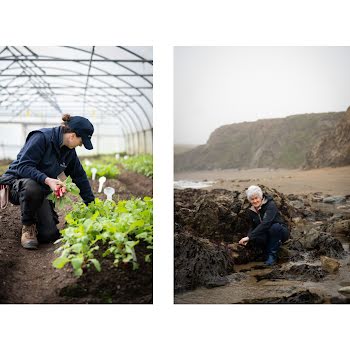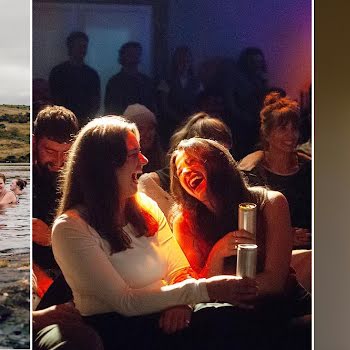‘Bridgerton’ author on the female gaze and why the show’s sex scenes are revolutionary, not raunchy
By Sarah Finnan
06th Jul 2022
06th Jul 2022
Some fans consider Bridgerton to be 'Netflix’s raunchiest show' but author Julia Quinn argues otherwise.
In light of Bridgerton’s season two release earlier this year, author Julia Quinn – the woman behind the series of books that the popular regency drama is based on – has opened up about what she really thinks of the screen adaptation and why the show’s portrayal of female pleasure is so important.
Often labelled “Netflix’s raunchiest show” thanks to its many (many!) sex scenes, it’s a statement Quinn doesn’t necessarily agree with. Speaking to The Telegraph about the huge international success the series has enjoyed since it first aired on Christmas Day 202, she pointed out that the reason people often jump straight to words such as “racy” as a descriptive is because there’s such a focus on female pleasure.
“The difference is you see it through the female gaze rather than the male gaze,” she noted. “That feminisation of intimacy is so revolutionary that people say, ‘Well, it must be sexy and raunchy.’”
Advertisement
Rape scene
Later touching on the topic of consent as well, Quinn said that there was one particular moment that really got people talking – yes, the controversial rape scene between Daphne and the Duke in season one. Learning that her husband had lied to her about not being able to have children (he had sworn never to have a child as revenge against his own abusive father), Daphne intentionally prevents her new husband from using the pull-out method… all in the hopes that she’ll fall pregnant.
“The debate was interesting. No one questioned that scene when I wrote the book. So why are we viewing this differently over time? It’s to do with our greater understanding about consent,” Quinn noted. It goes beyond that though. “Also it’s harder for modern women to sympathise fully with [Daphne’s] actions, to understand a woman who’s been raised to define her worth through her ability to bear children.” It’s proof how far the conversation has evolved since the book first appeared, even if it gets somewhat stuck in the black-and-white nature of consent.
Some viewers were shocked that the episode didn’t have a trigger warning prior to the scene, but Bridgerton intimacy coordinator, Lizzy Talbot, credits it with launching “a really great conversation” about the issue of consent – a topic that has been thought of as taboo for far too long. “I think it’s created a really great conversation around consent,” she said. “And what it looks like, regardless of gender.”
Advertisement
It’s fascinating to look at just how much ideas of consent have changed since The Duke and I first hit shelves in 2000. While sexual consent undoubtedly still has its shortcomings, it’s understood by a much greater swath of the public, who were made uncomfortable enough to voice their concern about the scene in the Netflix series. These kinds of cultural shifts are typically generations in the making, but the line between consensual sex and rape has clearly been firmly drawn in that short twenty years, no doubt aided by a handful of shows who have brought female sexuality and consent to the forefront of its programme and plots.
Cultural shifts
The female gaze is still somewhat of a foreign concept in the world of TV and film, but more and more shows have been following Bridgerton’s lead and changing up how they frame the stories they have to tell. Take Outlander, as an example. As those of you who have watched the series will know, it opens with a fairly hot and heavy moment between a husband and wife… but unlike the traditional silver screen sex scenes we’re used to seeing, Frank is the one pleasuring Claire. According to Glamour Magazine, the series’ most intimate encounters “are more than hot, they’re genuinely feminist”.
During lockdown we collectively binge-watched Normal People – another series that has been described as “revolutionary”, particularly when it comes to topics such as consent, setting boundaries, and establishing an equal balance between both male and female desire onscreen. Yes, there was nudity. Yes, there was sex. But, despite what some Joe Duffy listeners might have you believe, it wasn’t raunchy or “like something from a porno movie”. In fact, I’d go so far as to say it was quite the opposite. The positive impact of working with intimacy coach Ita O’Brien was evident and the whole thing felt very authentic.
Even Sex Education has been changing how we talk about sex and female pleasure. A show loved by both young and old alike, the most recent season is a prime example of how important it is to question what society has deemed “the norm” for so long. The series facilitates conversations about everything from the patriarchy to fertility, sexual fantasies, and the non-binary experience… always in a carefully considered and thoughtful way.
Advertisement
As Julia Quinn has already established, describing Bridgerton and other series that portray sex in a way that varies from what we’re typically used to seeing, as “raunchy” does them a disservice. None of the above shows are any more explicit than other pre-existing programmes, and the focus on female pleasure shouldn’t immediately goad you into thinking that they’re “risqué”, “provocative” or “erotic”.
Female pleasure has been emitted from conversations about sex for too long and it’s about time that the entertainment world starts addressing the orgasm gap with their content.


